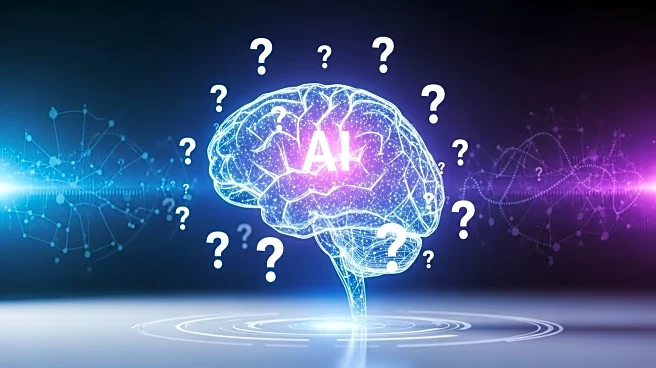What's Happening?
A recent study has demonstrated that GPT-4 performs comparably to human examiners in ranking open-text answers, but shows less reliability in point assessments. The research involved human examiners and GPT-4 evaluating undergraduate macroeconomics exams. The study found that while GPT-4's ranking capabilities were on par with human examiners, its point assessment results were less consistent. The human examiners, who were student assistants with high grades in macroeconomics, showed a higher inter-rater reliability (IRR) in point assessments compared to GPT-4. The study highlighted that GPT-4's broader training data might contribute to its greater tolerance in point assessments, which could affect its reliability.
Why It's Important?
The findings are significant as they suggest that while AI can match human performance in certain evaluative tasks, it may not yet be ready to fully replace human examiners in all aspects. This has implications for educational institutions considering AI for grading purposes. The study raises concerns about potential biases in AI grading, such as favoring longer answers or those generated by AI itself. These biases could lead to grade inflation and affect educational standards. The research underscores the need for careful consideration of AI's role in education, particularly in tasks requiring nuanced judgment.
What's Next?
The study suggests potential improvements in GPT-4's point assessment capabilities by simplifying its evaluation process. By scoring answers individually rather than in sets, GPT-4's reliability improved, approaching that of human examiners. This indicates that AI's performance can be enhanced with targeted strategies. Educational institutions may explore these strategies to better integrate AI into grading systems. Further research is needed to address biases and improve AI's consistency across different domains and tasks.
Beyond the Headlines
The study highlights ethical considerations in using AI for educational assessments. The potential for AI to favor its own generated content or longer answers raises questions about fairness and integrity in grading. As AI becomes more integrated into education, institutions must address these ethical concerns to ensure equitable and accurate assessments. The research also points to the need for ongoing evaluation of AI tools to adapt to evolving educational needs and standards.










